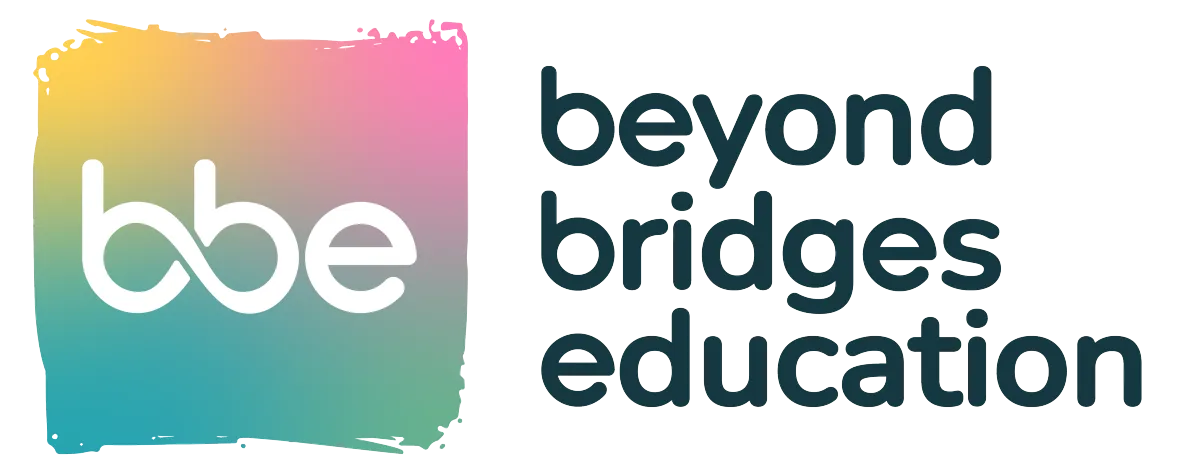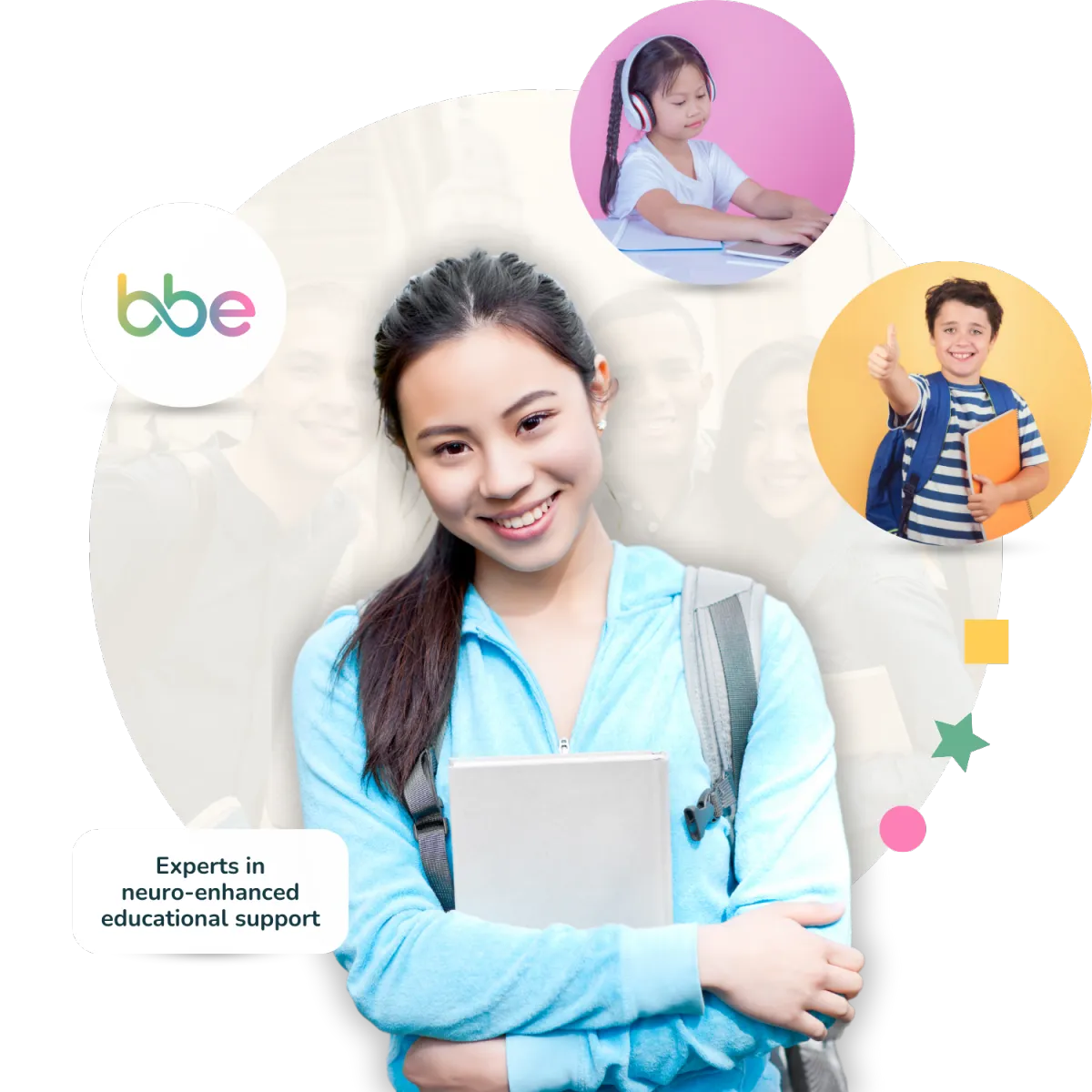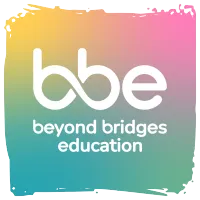
Experienced Educators

Child-Centred Approach

Compassionate & Inclusive

Building Collaborative Teams
Welcome to Beyond Bridges Education
At Beyond Bridges Education, we are here to provide holistic and personalised support for children who learn differently, working closely with families and schools in the UK and internationally. Our goal is to help children feel seen, heard, and understood, while fostering a true love for life and learning.
Our approach is built on 3 Key Pillars, or the 3As
Awareness: Understanding how your child thinks, feels, behaves and relates to the world around them.
Adaptations: Offering practical, easy-to-apply strategies and solutions for both home and school.
Advocacy: Supporting you in building a collaborative team around your child.

Experienced
Educators

Child-Centred
Approach

Unparalleled
Commitment

Cultural
Sensitivity





If your child is facing challenges at home or in the classroom and you would like to chat about what’s going on, we would love to listen.
What our families and schools say about us

What sets Lisa apart is her unique blend of honesty and support. She has an uncanny ability to provide constructive feedback in a way that encourages growth and inspires improvement. Lisa's straightforward approach ensures that her observations and recommendations are always well-received by our staff. Her genuine desire to see us succeed has created a culture of trust and openness, enabling our teachers to embrace change and strive for continuous improvement.
School Principal - UK

Lisa recognises that every family, and every child, is different and always seems interested to learn the special aspects of each person in order to help them leverage their own strengths while also assisting them with developing new approaches. In Lisa’s sessions with my son, her natural ability to connect with him on his level is evident and she always makes the experience fun for him too.
Parent - Canada
Services for Families
We are here to guide families through every step of their child's educational journey, ensuring that every child receives the tailored support they deserve.

Strengths Based Assessment
Our strengths-based assessment process is designed to provide you with comprehensive insights tailored to your child's unique needs.

Team Around The Child
Our TAC Services are designed to provide continuous support to you and your child throughout their educational journey.

Specialised tutoring
Our approach stands apart from traditional tutoring programs, as we prioritise a holistic focus on various aspects of development beyond academic subjects.
Services for Schools
We support schools by providing professional development in inclusive education. We develop teachers' adaptive teaching skills and help them grow in confidence to support students with learning differences, enhancing academic and well-being outcomes.

Our Latest Blogs

One size does not fit all
“Why can't we have more of this knowledge in our schools?” - Parent
Two days ago, I listened to Radio 5 Live where Nicky Campbell posed a critical question: "Is it too hard to get SEND help?" The discussion was sparked by a BBC report revealing that some councils are failing to meet their deadlines for issuing Education, Health, and Care Plans (EHCPs). These plans outline the support needed for children with special educational needs or disabilities (SEND) to access education. Legally, councils have 20 weeks to issue an EHCP, but they argue that increasing demand and insufficient funding are causing significant delays.
Hearing the experiences of so many parents whose children's needs are not being met in schools was heartbreaking. The conversation highlighted numerous issues: the lengthy wait times for EHCPs, the possibility of being denied an EHCP, and the trauma associated with these delays. The negative outcomes for children, young people, and their families when local schools cannot meet their needs were distressing.
One caller's perspective stood out to me. She argued that teacher education programs often do not provide enough training on supporting children with special educational needs, resulting in teachers who feel unprepared and lack confidence. This reminded me of an article I read about the government's initiative to reduce the number of new education plans for children with SEND and the launch of the Delivering Better Value (DBV) in SEND program. This program, being implemented in 55 councils across England, aims to improve timely access to support, prevent the escalation of needs, and eliminate barriers to mainstream inclusion for children and young people with SEND. It is an ambitious project that gathers the views of thousands of children, young people, families, and practitioners, culminating in over 9 million data points. One aim is to improve the services at school level.
Despite the commendable scope of the DBV program, I believe it may be missing a crucial element. During my graduate research, I focused on the concept of teacher self-efficacy—the belief teachers hold about their ability to effectively implement inclusive practices. Originating from Albert Bandura's concept of self-efficacy, which refers to an individual's belief in their ability to succeed in specific situations, these beliefs are critical in determining how people think, behave, and feel.
Research
My research, consistent with other studies, found that while teachers have positive intentions towards inclusive practices, several factors influence their perceived ability to implement these practices. These factors include support from colleagues and senior leaders, prior experience with SEND students, and the extent of training received during teacher education amongst others. Notably, research shows that teachers with high self-efficacy employ more effective teaching strategies, demonstrate greater perseverance, and achieve better outcomes for students with SEND. It is possible, then, that high teacher self-efficacy might be the key ingredient in fostering inclusive learning environments.
It is clear that school teams teachers are doing their best under challenging conditions. There are dedicated school leaders, teachers and teaching assistants who create positive, inclusive environments where students thrive. However, such success stories are not widespread. We need to delve deeper into the experiences of school teams —understanding their challenges and providing tailored support based on the unique needs of their students. This involves more than just generic training; it requires a nuanced approach that integrates inclusive education as a fundamental aspect of teacher preparation, rather than an additional component.
Recently, a parent we are supporting expressed frustration, asking, "Why can't we have more of this knowledge in our schools?" We had discussed small, meaningful, neuro-enhanced adjustments that can be made in schools to support all learners. The answer is that we can, but it requires meaningful, long-term, responsive engagement with schools that explores bias and past experiences and deepens practice over time. Schools and teachers do not need more initiatives or greater expectations on outcomes; they need trusted partners who can work with them over time to develop the inclusive environments they are more than capable of creating with the right support in place.
At BBE, enhancing self-efficacy is at the core of everything we do, whether working with teaching teams, families, or directly with children and young people. We pride ourselves on fostering caring and collaborative partnerships with schools and families to make a meaningful impact on the lives of neurodivergent children and young people, their families, and the educators who support them. By building confidence and capability, we aim to create supportive environments where every individual can thrive.
References:
Delivering Better Value in SEND Programme
Revealed: covert deal to cut help for pupils in England with special needs | The Guardian




